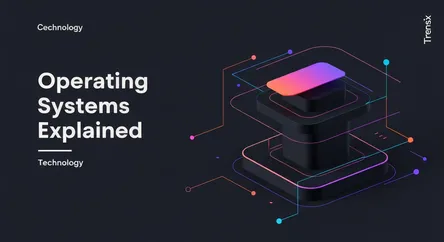Technology
Operating Systems Explained

Ever wonder what an Operating System (OS) is? Discover the essential software that powers your phone, computer, and other gadgets, managing every task.
What is it?
An Operating System (OS) is the core software that runs on a computer or smart device. It acts as an intermediary between the user and the computer hardware, managing all software and hardware resources. Think of it as the brain of your gadget, coordinating everything from keyboard inputs to memory allocation and file storage. It provides the graphical user interface (GUI) that allows you to run applications like web browsers and games. Popular examples include Microsoft Windows, macOS, Android, and iOS.
Why is it trending?
Operating Systems are perpetually trending due to constant evolution. Companies like Microsoft, Apple, and Google regularly release updates with new features, enhanced security, and cutting-edge tech like artificial intelligence. Recent trends include deep AI integration (e.g., Windows Copilot), improved cross-device continuity, and a heightened focus on user privacy controls. The fierce competition for market share in both desktop and mobile spheres ensures a steady stream of innovation, keeping users anticipating the next big release.
How does it affect people?
The OS fundamentally shapes a person's digital life. It dictates the look and feel of a device, the applications you can install, and overall workflow. Your choice of OS—be it the flexibility of Linux, the streamlined ecosystem of macOS, or the widespread compatibility of Windows—impacts everything from productivity to entertainment. It's also crucial for digital security, acting as the first line of defense against malware. Ultimately, the operating system defines the relationship between a user and their technology, making it one of the most impactful software choices.